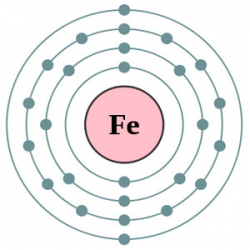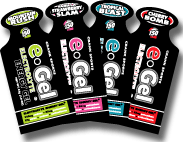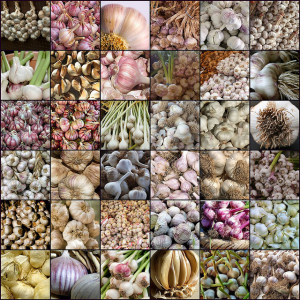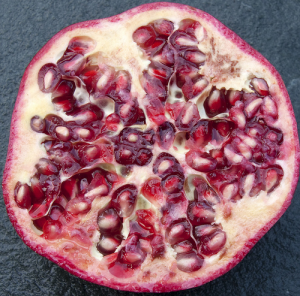 Iron (Fe) is the most abundant element on the planet Earth. It can be found in outer and inner core. This element is playing very crucial role the human’s health. Our bodies require around 100 milligrams per day of Fe. This important element regulates DNA synthesis, growth, healing, immune function, reproduction and even metabolism. Without Iron our red blood cells would not be able to carry Oxygen. Hemoglobin and Myoglobin are the two proteins in red blood cells that are responsible for delivering oxygen via blood and muscles. This function makes Fe a very important element for athletic performance. Every time I ride my bike at a fast pace or climbing a long hill, especially on my single speed bike, I wish I had more oxygen delivered to my muscles for better performance.
Iron (Fe) is the most abundant element on the planet Earth. It can be found in outer and inner core. This element is playing very crucial role the human’s health. Our bodies require around 100 milligrams per day of Fe. This important element regulates DNA synthesis, growth, healing, immune function, reproduction and even metabolism. Without Iron our red blood cells would not be able to carry Oxygen. Hemoglobin and Myoglobin are the two proteins in red blood cells that are responsible for delivering oxygen via blood and muscles. This function makes Fe a very important element for athletic performance. Every time I ride my bike at a fast pace or climbing a long hill, especially on my single speed bike, I wish I had more oxygen delivered to my muscles for better performance.
The body does amazing things by adopting to external environment. One of the attorneys that I work with on personal injury cases spent two weeks with his son in Mountainous region of India. He is in his mid 50s and is an avid surfer. When he has returned from his trip he informed me that he feels like he is 25 years of age. His energy level was over the roof and he was able to surf and play tennis much longer than before. What has happened here? Body is trying to compensate for low levels of O2 in blood stream thus stimulating the production of more red blood cells and increasing the O2 carrying capacity. When an individual returns back to normal altitude and he or she has more then normal oxygen in blood stream thus is the reason for better sport performance and increase energy level. This effect is not long lasting as the body will adopt to normal altitude very fast and will decrease the amount of red blood cells.
People who have Iron deficiency can have pale skin, brittle or grooved nails, hair loss, irritability and general weakness. Frequent blood donors, vegetarians, long-distance runners, pregnant women or women who just gave birth, and women who have heavy periods are usually at risk of having iron deficiency. Approximately 50 percent of pregnant women, 20 percent of women, and 3 percent of men have Fe deficiency.
Many foods in our diet have this very important element. The best food sources would be dried beans, dried fruits, eggs (especially yolks), red meat, oysters, tuna, salmon, whole grains, apples. Animal source of this element is absorbed better than plant source. Perhaps combination of both animal and plant diet will provide the sufficient amount of Iron for ones health. One can also get a supplement from a health store but I would advice to consult your primary care physician first.
If you have anything to add to this post, please feel free to Post a comment or share your thoughts through Facebook, Twitter or comment section below to join the conversation.


